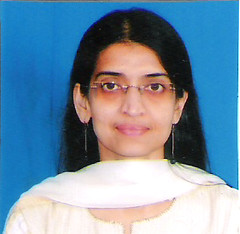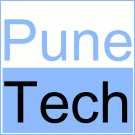ShopSocial.ly is a Pune-based startup that launched a couple of weeks back and immediately got coverage from both TechCrunch and GigaOm – which is a major achievement for any startup.
To give PuneTech readers some insights into what it takes to build and launch a startup like this out of Pune, we talked to a bunch of people associated with ShopSocial.ly.

First, here is a short interview with Jai Rawat, CEO of ShopSocial.ly:
Congratulations on the launch of ShopSocial.ly and the coverage from . Can you give a brief overview of ShopSocial.ly from your point of view?
We all trust our friends advice much more than what the advertisers tell us. Yet, currently most of our shopping is influenced by the ads. ShopSocially is built on the vision that the influence needs to shift from ads to our circle of trust – i.e. friends.
ShopSocially allows you tap into the collective wisdom of friends to get trusted recommendations. Friends can not only ask questions, they can also share their purchases to get comments and feedback.
The idea of social shopping is not new. In fact, many people in the Pune startup ecosystem will be familiar with the success of Kaboodle which launched in 2005. So how is ShopSocial.ly different?
First a disclosure – Kaboodle CEO happens to be a very good friend and fellow IIT Kanpur Alumnus.
While the original premise behind Kaboodle was similar to ShopSocially, they have really focused more on shopping search rather than creating a network for friends. Recall that at the time Kaboodle started, social networking had not taken roots.
On the ShopSocial.ly about page, I notice that you appear to have used a lot of small Pune companies/freelancers in building your product. I recognize Shashank Deshpande (of Clarice Technologies) who usually does usability, Prakash Thombre (of widemediaguy) who does graphic design, Rohan Dighe (of SocialWebFactory) who does social-media/facebook apps, Mangesh Yadav (of Joomlian) who builds websites, and I’m sure there are others that I do not recognize. As someone interested in the Pune “startup ecosystem”, I’m thrilled at this level of collaboration amongst Pune’s small companies. Would you comment upon how you approached this aspect of building your product, and whether you see this as a continuing/sustainable approach in the future?
There is certainly no dearth of great talent in India – even for the cutting edge web 2.0 technologies. My previous startup, AirTight Networks is also based in Pune and was one of the first product companies born out of India. Just like AirTight, ShopSocially product development has happened completely in Pune. The team has done a phenomenal job. In fact when people visit the site, one of the first question they ask me is who built the site and where did I find these people. They are quite incredulous that we were able to find such talent in India.
So yes, I very much see this as a continuing /sustainable approach going forward.
What do you see as the primary challenge for ShopSocial.ly to tackle now?
The immediate priority is to really understand and analyze user behavior and make necessary changes. If we can delight our users, they will feel compelled to invite their friends and it will go viral.
Your previous company, Airtight Networks, was an enterprise software company, and this one is a consumer web service. Can you talk about the difference in approach required for these two different kinds of companies? What extra efforts does a Pune-based startup need to take to be able to succeed in these two markets?
Enterprise software and consumer web service are two very very different animals. Enterprise products sell on functionality. Usability is important but it is more of a race to build the most number of features. The product comes with a thick user manual and is used by a few people who get special training to use that product.
Consumer web service on the other hand needs to be very intuitive and simple. It is very tempting to add a lot of features and the hard part is to maintain the discipline of keeping it simple.
I would say that building an enterprise product is a little harder especially if your customers are abroad. Unless developers understand the customer mindset, it is hard for them to build the right product. For consumer facing products, it is a bit easier because you can think like a consumer yourself. However, at the same time, consumer facing products require a lot of iterations on the user interface which can be very frustrating.
What are the most common mistakes you see amongst the young entrepreneurs these days?
I think one of the biggest mistake I see is that often they are more focused on perfecting their VC pitch rather than their idea. Their goal is to somehow convince a VC to put some money into the company. This is exactly the wrong approach. First and foremost you need to convince yourself that it is worth spending the next few years underpaid and overworked chasing this idea. Your energy should be focused on researching and refining the idea until you can honestly sell it to yourself. Once you are fully convinced, even if you don’t get VC funding, you may still find the passion and energy to pursue it anyways.
I always tell them to ask a simple question to themselves – is the idea worth failing at? The odds are stacked up against you. 9 out of 10 companies fail. However, even if you fail, you should be able to look back and say it was still worth it.
As indicated in one of the questions to Jai, we at PuneTech absolutely loved the fact that so many different Pune companies have been used by ShopSocial.ly in building their product. We tried to talk to some of them to get a feel for the interesting aspects of working on ShopSocial.ly.
Rohan Dighe, Pune-based founder of SocialWebFactory, who did the tight integration of ShopSocial.ly with facebook, points out that this exercise had some interesting challenges:
We noticed that people end up with two different networks of friends – one on ShopSocial.ly, which is smaller and more focused, and another on Facebook, which is larger and more diffuse. The conversations + comments that happen around any post are very different in these two settings. To ensure a seamless experience, what we now do is pull the entire Facebook discussion around any ShopSocial.ly post, and display it on ShopSocial.ly along with the native comments.
Another great thing about the Facebook integration is that ShopSocial.ly does not have a user registration or user login mechanims. We fully leverage Facebook for this, and thus we are able to get a full profile of any user (from Facebook) without them having to provide any data, and without them having to remember yet another username and password.
Shashank Deshpande of Clarice Technologies who helped ShopSocial.ly on user interaction design & product branding, points out that one of the most difficult things to do in a product like this is to keep it simple:
Shopping and socializing are two activities that we all have been doing for years, and hence we know a lot about them. Due to this, the first instinct would have been to add lots of features related to shopping and lots of features related to socializing to the product. However, doing that results in a product that non-techy consumers find a little confusing and overwhelming. We had to work really hard to reduce the functionality of the product and bring it down to a very small number of actions that are intuitive, and yet powerful enough that encompass the most important aspects of the product. The “Shout” and “Share” actions that you see on ShopSocial.ly are the result of that process.
Visual designers at Clarice Technologies had a challenging task to create product brand that would appeal to the international audience. Choice of product logo, colors & overall visual treatment was critical to make the product stand out from the plethora of consumer portals.
At the end of all these conversations, doubts still remain about what potential is there in this area, and we decided to get an expert opinion.
Basically, Social shopping is not a new concept, and there have been a number of startups in this space, including successful ones. For example, was started 5 years ago, and sold to Hearst corporation in 2007. Luckily for us, one of the co-founders of Kaboodle, Chetan Pungaliya, is now based in Pune. Although Chetan is not connected to ShopSocial.ly in any way, we caught up with Chetan to get his views on this market. Specifically, if social shopping is more than 5 years old, is there still scope for new startups to do interesting things in this space? Chetan thinks there is still a lot of potential:
The existing batch of social shopping startups, of which Kaboodle is one of the most successful, happened in the pre-Facebook era. They have their own social network, and users went there specifically. However, if social shopping can happen in the context of a user’s other social activity, for example, while doing other things on facebook, that can significantly improve the reach. New social shopping sites that nail this can do well. Also, as the internet becomes more entrenched and people start buying more categories online (which were not being bought online before – for example, art), new models of social shopping will emerge. I think, this remains an exciting space to watch.
There you have it – a broad multi-person view of ShopSocial.ly. This is an experimental format for PuneTech, so please let us know what you think of the format in comparison to a more conventional overview/interview.
Related articles by Zemanta
- Bing Shopping goes social (liveside.net)
- Social shopping on Facebook: An e-tail bet (smartblogs.com)
- Levi’s Integrates Facebook Social Plugins into Online Shop (mashable.com)
- YC-Funded Mertado: Deal Hunting, Social Shopping For Facebook (techcrunch.com)
- Emily Fleischaker: Would You Go Grocery Shopping on Facebook? (huffingtonpost.com)
- More on Social Shopping – Groupon (myventurepad.com)
![Reblog this post [with Zemanta]](http://img.zemanta.com/reblog_b.png?x-id=1e465248-0bf6-47a9-a176-0e8efa524b60)






![Reblog this post [with Zemanta]](http://img.zemanta.com/reblog_b.png?x-id=2857208e-4810-4bcd-9dee-379c01170f39)

![Reblog this post [with Zemanta]](http://img.zemanta.com/reblog_b.png?x-id=dcc84d57-62be-4f8c-91f4-0198c4c7a102)


